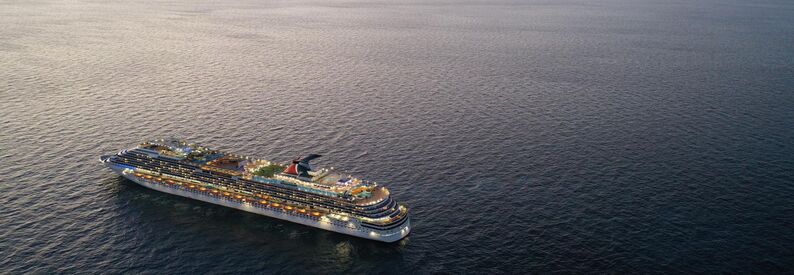Carnival Corporation Installs Solar Panels at Barcelona Cruise Terminals

Carnival Corporation & plc is making significant strides in sustainability by installing solar panels atop two of its cruise terminals in Barcelona. This groundbreaking project involves the installation of 1,350 roof-mounted solar panels, marking the first of its kind at the Port of Barcelona. Once completed at Palacruceros (Terminal D) and Helix Cruise Center (Terminal E), these solar panels will generate more than 100 percent of the energy required to power the daily operations of both terminals.
The solar installation is projected to produce over 866,000 kilowatt-hours (kWh) annually. Additionally, an estimated 245,000 kWh of surplus energy generated by the solar panels will be fed back into the local grid, providing enough power to supply approximately 60 households for a year. This initiative not only enhances the sustainability efforts of Carnival Corporation but also supports the local community by contributing clean energy to the region.
The installation process began in July and is on schedule to be completed by the end of 2024. This project follows Carnival’s earlier success with a new solar panel farm at its Amber Cove Cruise Center in the Dominican Republic, further demonstrating the company’s commitment to renewable energy and reducing its environmental footprint. The Port of Barcelona, already a leader in sustainability by being the first Mediterranean port to offer liquefied natural gas (LNG) to cruise ships, now enhances its green credentials with this solar project.
Karin Plettner Rutishauser, Vice President of Global Ports and Destinations Strategy for Carnival Corporation, emphasized the importance of this initiative. “The shift to renewable energy is an integral part of our global strategy to reduce greenhouse gas emissions and minimize our environmental footprint at the beautiful destinations we visit,” Rutishauser stated. She further highlighted the partnership with the Port of Barcelona, stating, “By partnering with Port of Barcelona, the solar panels at our terminals will significantly contribute to the production of clean energy, benefiting both the local community and our over one million cruise guests who enjoy this vibrant city each year.”
Carnival Corporation’s investment in solar energy at the Barcelona cruise terminals underscores the company’s broader commitment to sustainability and environmental responsibility. By harnessing renewable energy sources, Carnival aims to reduce its reliance on traditional power grids, lower operational costs, and decrease its overall carbon footprint. This move aligns with global efforts to combat climate change and promotes a more sustainable future for the cruise industry.
The successful implementation of solar panels at Palacruceros and Helix Cruise Center sets a precedent for other ports and cruise lines to follow suit. As the cruise industry continues to grow, initiatives like these are crucial in ensuring that expansion does not come at the expense of the environment. Carnival Corporation’s proactive approach to sustainability not only enhances its corporate image but also meets the increasing demand from environmentally conscious travelers who prioritize green practices when choosing their cruise vacations.
In addition to solar energy, Carnival Corporation is exploring other sustainable technologies and practices to further reduce its environmental impact. These include the use of LNG, advanced waste management systems, and energy-efficient ship designs. By integrating these innovations, Carnival aims to lead the way in sustainable cruising, setting industry standards and inspiring other companies to adopt similar measures.
As the installation of solar panels at the Barcelona cruise terminals progresses, Carnival Corporation continues to demonstrate its dedication to sustainability and responsible tourism. The successful completion of this project will not only provide significant energy savings and environmental benefits but also reinforce Carnival’s position as a leader in the global cruise industry’s shift towards greener operations.
